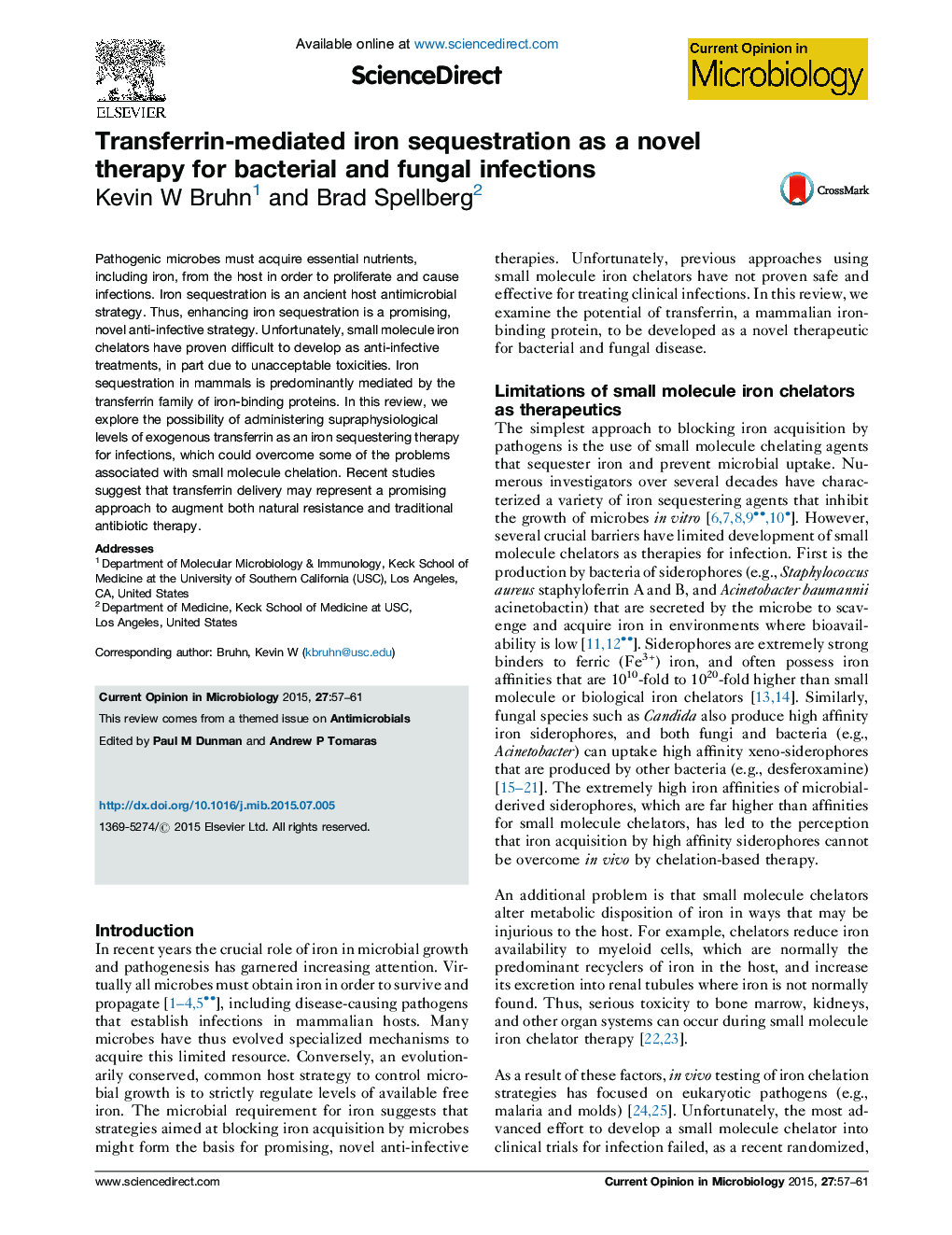| Article ID | Journal | Published Year | Pages | File Type |
|---|---|---|---|---|
| 6131804 | Current Opinion in Microbiology | 2015 | 5 Pages |
Abstract
Pathogenic microbes must acquire essential nutrients, including iron, from the host in order to proliferate and cause infections. Iron sequestration is an ancient host antimicrobial strategy. Thus, enhancing iron sequestration is a promising, novel anti-infective strategy. Unfortunately, small molecule iron chelators have proven difficult to develop as anti-infective treatments, in part due to unacceptable toxicities. Iron sequestration in mammals is predominantly mediated by the transferrin family of iron-binding proteins. In this review, we explore the possibility of administering supraphysiological levels of exogenous transferrin as an iron sequestering therapy for infections, which could overcome some of the problems associated with small molecule chelation. Recent studies suggest that transferrin delivery may represent a promising approach to augment both natural resistance and traditional antibiotic therapy.
Related Topics
Life Sciences
Immunology and Microbiology
Microbiology
Authors
Kevin W Bruhn, Brad Spellberg,
